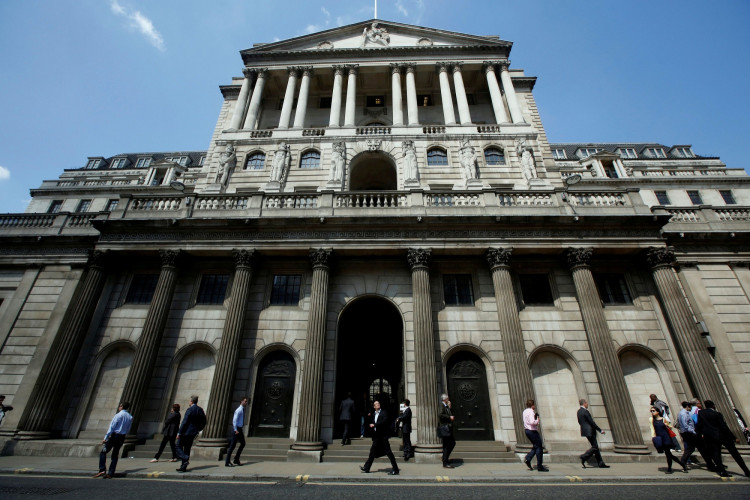The Bank of England (BoE) announced Thursday that it would keep interest rates unchanged at 5.25%, marking the second consecutive pause after 14 successive rate hikes. The central bank cited weakening economic activity and easing inflation as reasons behind the decision, igniting speculation on whether the highest rate level since February 2008 has peaked.
This move by the BoE is in line with other major central banks' recent decisions, with the U.S. Federal Reserve and the European Central Bank both holding off on rate hikes. Both institutions flagged growing concerns about slowing economic momentum as elevated borrowing costs potentially hinder demand.
While the BoE's Monetary Policy Committee (MPC) predominantly voted in favor of the hold, the decision wasn't unanimous, with three members opting for another 25-basis point increase. The central bank's latest statement pointed out the necessity of maintaining a tight monetary policy for a prolonged period. "Further tightening in monetary policy would be required if there were evidence of more persistent inflationary pressures," it noted.
Inflation remains a top concern for the BoE. Although the rate has dipped to 6.7%, it remains significantly above the bank's 2% target. UK consumer prices held steady in September year-on-year, with food prices experiencing their first monthly drop in two years. However, energy costs did not fall as drastically as in August, suggesting underlying inflationary pressures.
Bank of England Governor Andrew Bailey emphasized the critical stance on inflation, stating, "We will keep interest rates high enough for long enough to ensure we get inflation back to the 2% target." Bailey remained cautious, insisting that despite a diminishing inflation rate, "there is absolutely no room for complacency."
The BoE also released its forecasts for UK economic growth, which revealed a more pessimistic outlook than previous estimates. The central bank anticipates that the UK's gross domestic product (GDP) will remain stagnant for the third quarter of 2023 and only increase by a mere 0.1% in the fourth quarter. The UK's economy, although not in recession, lacks momentum, and the lingering effects of increased interest rates could exacerbate the slowdown.
Several market analysts believe that the rate hiking cycle may be at its zenith. Emma Mogford of the Premier Miton Monthly Income Fund expressed growing confidence that the current rate is the peak. Similarly, Suren Thiru, economics director at ICAEW, observed that the broader consensus among MPC members indicates that "rates have now peaked."
This prevailing sentiment was juxtaposed by remarks from British Chancellor of the Exchequer, Jeremy Hunt, who lauded the UK's resilience. Hunt emphasized the need for sustainable growth, hinting at future measures aimed at catalyzing private investment and workforce mobilization.
As markets globally grapple with the interplay of economic slowdowns and inflationary pressures, the BoE's decisions are closely watched. The implications of the bank's stance not only reverberate in the UK but also influence financial markets worldwide.






